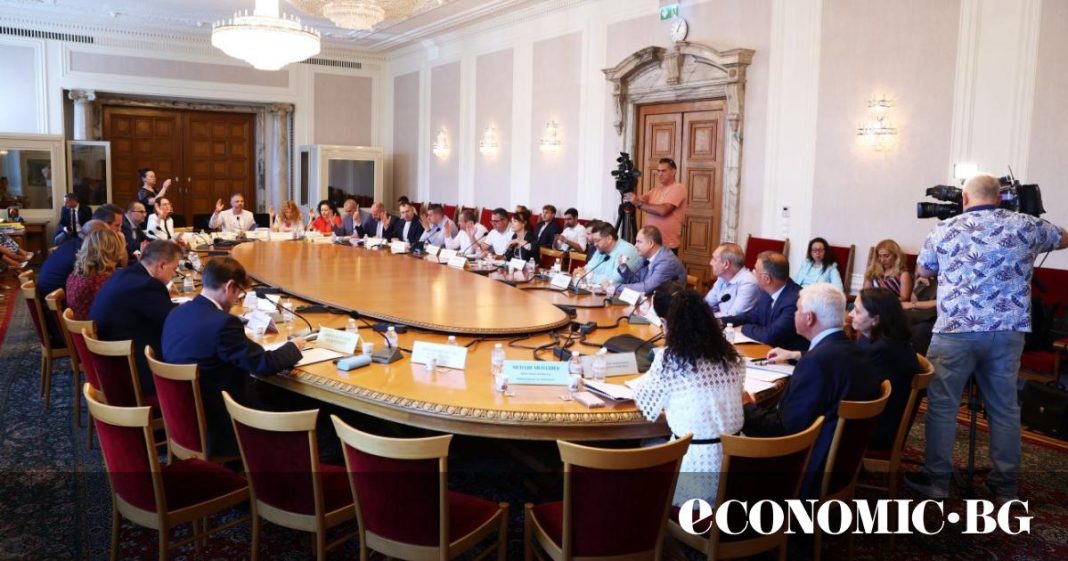The Parliamentary Budget and Finance Committee approved at first reading the proposed controversial amendments to the Law on the Introduction of the Euro in Bulgaria. The amendments were supported by 11 MPs, while 9 were against.
During the discussions, the issue of unjustified price increases was raised several times, for which the amendments provide for fines of between BGN 1,000 and BGN 10,000 the dual pricing, and the publication of price information on the portal that the Consumer Protection Commission (CPC) is creating and will supervise.
Various business representatives expressed concerns that, as drafted, the law does not give a clear idea of what justifications are acceptable for price increases, but instead attempts to prevent any increases in the next year and a half.
The state is trying to freeze prices for a year and a half,” said Yana Stratieva, executive director of the Food and Beverage Association Bulgaria.
„We are working to ensure food security and have done so successfully during the last few crises. We ask that no artificial crisis be created, because so far no one has managed to bring inflation down to zero, as you are trying to do. If there were, they would surely have won the Nobel Prize,“ Stratieva added.
She then asked whether wages were an acceptable excuse, given that their level depends on market trends and labor shortages.
However, her statement was met with some outrage from Yordan Tsonev of the Movement for Rights and Freedoms (MRF).
He pointed out that wages are included in the calculation of the cost price of products, i.e., they are an objective factor.
The same applies to rent or increased supplier prices.
Do we need to go back to first-year economics to see how the cost price of a product is determined? This is an absolutely transparent and market-based mechanism,” said Tsonev.
A blank check for action
Martin Dimitrov from “We Continue the Change – Democratic Bulgaria” saw another problem in the Transitional and Final Provisions, where paragraph 1, subparagraph 1 states:
The Council of Ministers may determine rules and conditions for the introduction of temporary countermeasures in the event of excessive increases in the prices of goods and services.
According to Dimitrov, this gives “a blank check for any action by the Council of Ministers,” as it does not specify what exactly the cabinet can do and what constitutes an “excessive” price increase.
As for the portal being prepared by the Consumer Protection Commission (CPC) with weekly information on the prices of goods and services, the PP-DB MP pointed out that it is appropriate for the data to be updated daily, not weekly.
The administrative fight against speculation risks raising prices, while the market and competition are driving prices down,” he added.
In response to Dimitrov, Deputy Finance Minister Metodi Metodieva pointed out that the aim of the first paragraph of the final provisions is to prevent what happened in Croatia, namely the introduction of price caps by the state.
We cannot provide information on all types of possibilities, but we want to prevent what happened in Croatia,” Metodiev said.
According to Tsonev, the market has proven that it is unable to regulate itself, which is why administrative measures are needed for prevention, while leaving traders the opportunity to justify the pricing of goods and services.
We are in a situation where there has been serious market distortion in recent years on the part of large retail chains, and cartel agreements are difficult to detect. The state needs to be a little stricter than usual,” Tsonev said.
No sanctions within a month
During the discussion, Stanislav Popdonchev, deputy chairman and chief financial officer of the Bulgarian Chamber of Commerce, expressed concern about the short deadlines for introducing dual pricing on fiscal receipts issued by cash registers. According to him, this concerns over 460,000 fiscal devices.
In response, the chairman of the relevant committee, Delian Dobrev, said that between the first and second readings of the bill, amendments would be proposed providing that in the first month after the rules come into force, the control authorities would only issue warnings regarding the dual pricing on fiscal receipts, and after that period, fines would be imposed for violations.
Translated with DeepL.
Източник: Economic.bg


